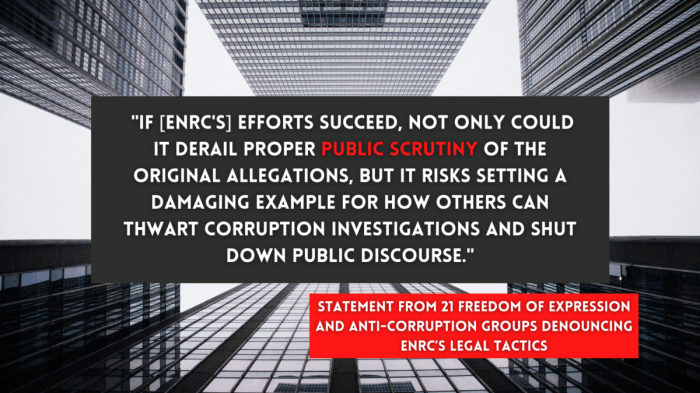An important source of public scrutiny is watchdogs these are – Watchdogs, a critical component of public scrutiny, play an indispensable role in holding public figures and institutions accountable. They serve as vigilant guardians, exposing corruption, wrongdoing, and abuses of power, thereby fostering trust and transparency in society.
These organizations, ranging from media outlets to non-profit groups and citizen watchdogs, employ a diverse array of methods to scrutinize public affairs. Investigative journalism, data analysis, and public records requests are just a few of the tools they wield to uncover the truth and promote accountability.
Importance of Watchdogs in Public Scrutiny

Watchdogs are essential for ensuring transparency and accountability in public life. They play a crucial role in monitoring the actions of public figures and institutions, exposing corruption, and advocating for the public interest.
Watchdogs have a long history of uncovering wrongdoing. For example, the Watergate scandal of the 1970s was brought to light by the relentless efforts of investigative journalists at The Washington Post. More recently, watchdogs have played a key role in exposing the financial crisis of 2008 and the Volkswagen emissions scandal.
The work of watchdogs is essential for maintaining public trust in government and other institutions. When the public believes that wrongdoing is being exposed and addressed, they are more likely to have faith in the system. Conversely, when wrongdoing is allowed to go unchecked, public trust erodes.
Types of Watchdogs

There are many different types of watchdogs, each with its own strengths and weaknesses.
- Media organizationsare one of the most important types of watchdogs. They have the resources to investigate complex issues and bring them to the attention of the public. However, media organizations can be subject to political pressure and financial constraints.
- Non-profit organizationsare another important type of watchdog. They are typically independent of government and corporate influence. However, non-profit organizations can be limited by their funding and reach.
- Citizen groupsare a growing type of watchdog. They are typically made up of volunteers who are concerned about a particular issue. Citizen groups can be very effective at raising awareness and putting pressure on public figures and institutions. However, they can also be limited by their resources and expertise.
| Type of Watchdog | Strengths | Limitations |
|---|---|---|
| Media organizations | Resources to investigate complex issues; ability to reach a large audience | Subject to political pressure and financial constraints |
| Non-profit organizations | Independence from government and corporate influence | Limited by funding and reach |
| Citizen groups | Can be very effective at raising awareness and putting pressure on public figures and institutions | Limited by resources and expertise |
Methods of Scrutiny

Watchdogs use a variety of methods to scrutinize public figures and institutions. These methods include:
- Investigative journalismis a type of journalism that involves in-depth research and analysis. Investigative journalists often work on stories for months or even years. They use a variety of sources, including public records, interviews, and whistleblowers.
- Data analysisis another important tool used by watchdogs. Watchdogs can use data to identify trends and patterns that may indicate wrongdoing. For example, a watchdog might use data to track the spending of a government agency.
- Public records requestsare a powerful tool that watchdogs can use to obtain information from government agencies. Public records requests can be used to obtain a wide range of information, including financial records, emails, and meeting minutes.
Watchdogs have used these methods to uncover a wide range of wrongdoing, including corruption, fraud, and abuse of power.
Challenges Faced by Watchdogs: An Important Source Of Public Scrutiny Is Watchdogs These Are

Watchdogs face a number of challenges in their work. These challenges include:
- Funding limitationsare a major challenge for many watchdogs. Investigative journalism and data analysis can be expensive. Non-profit organizations and citizen groups often rely on donations to fund their work.
- Legal constraintscan also make it difficult for watchdogs to do their work. For example, some states have laws that make it difficult to obtain public records.
- Political pressureis another challenge that watchdogs face. Public figures and institutions may try to intimidate or discredit watchdogs that are investigating them.
These challenges can make it difficult for watchdogs to effectively scrutinize public figures and institutions. However, watchdogs play a vital role in ensuring transparency and accountability in public life. It is important to support watchdogs and their work.
FAQ Insights
What are the different types of watchdogs?
Watchdogs can be classified into various types, including media organizations, non-profit organizations, citizen groups, and government agencies with oversight functions.
How do watchdogs contribute to public trust?
By exposing wrongdoing and promoting transparency, watchdogs help build public trust in government and other public institutions.
What challenges do watchdogs face?
Watchdogs often face challenges such as funding limitations, legal constraints, political pressure, and threats to their safety and independence.